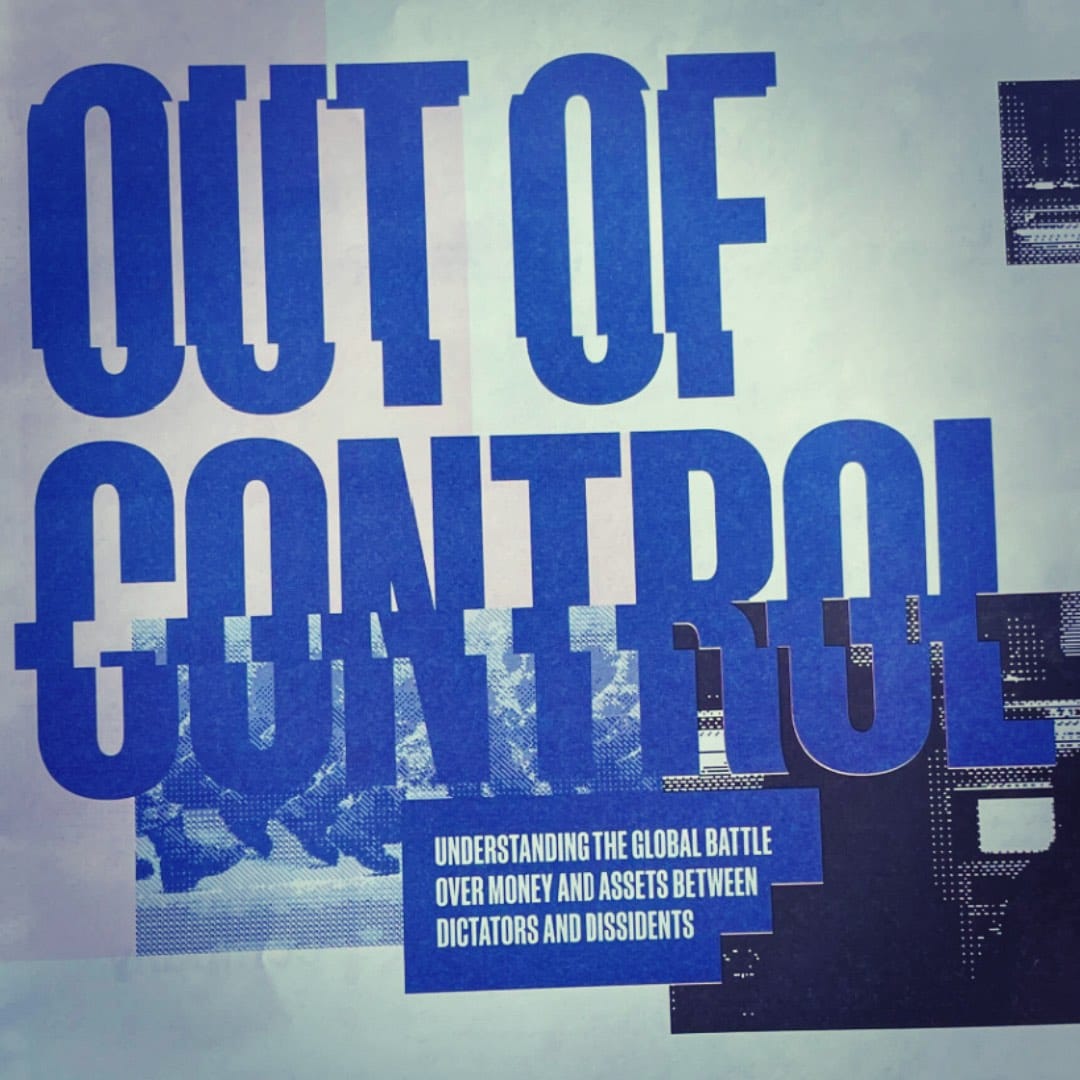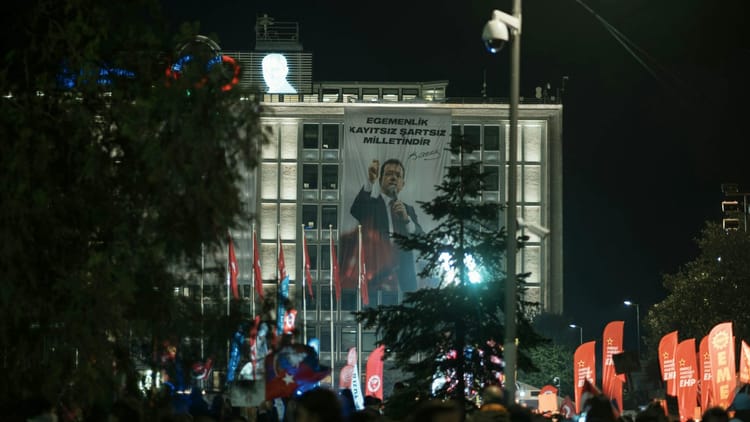Statutes of limitations—and other deadlines

Recently: What was Donald Trump trying to accomplish at the United Nations, telling his allies they’re committing civilizational suicide and the UN is a joke?
Today: The U.S. Justice Department prepares to indict a former FBI director as time runs out. An American senator backs a third Trump term despite constitutional limits. An “ANTI-ICE” gunman kills a detainee in Dallas. China drops developing-country status, saying it’s still a developing country. Israel’s offensive into Gaza City continues. & Nicaragua's co-presidents kill the last traces of civil society.
For members: Now Russia is trying to manipulate elections in … Moldova. Why?
& New music from Jeff Tweedy ...
Beat the clock
The U.S. Justice Department is moving to indict former FBI Director James B. Comey for lying to Congress. The charge: that he gave false testimony in September 2020 about whether he authorized leaks to reporters during the FBI’s investigation into Russian election interference. Federal prosecutors in the Commonwealth of Virginia plan to present the case to a grand jury as early as Thursday, just days before the five-year statute of limitations expires next Tuesday.
The timing tells its own story. Last week, U.S. President Donald Trump fired Erik Siebert, the Virginia prosecutor who’d declined to bring charges against Comey, and installed his former personal attorney Lindsey Halligan—who has no prosecutorial experience—as acting U.S. Attorney for Virginia’s Eastern District. Trump then publicly demanded that Attorney General Pam Bondi pursue criminal charges against Comey, along with New York Attorney General Letitia James and U.S. Senator Adam Schiff—writing on social media: "JUSTICE MUST BE SERVED, NOW!!!"
The case centers on contradictions between Comey’s congressional testimony and statements from former FBI Deputy Director Andrew McCabe about who authorized the media disclosures. Comey has long occupied an unusual place in America’s contemporary political mythology—reviled by Trump supporters as the deep-state incarnate, yet equally despised by former U.S. Secretary of State Hillary Clinton’s supporters for reopening an investigation into her email record days before the 2016 election.
Whatever one might think of Comey, the prosecutorial circumstances here suggest institutional capture over institutional justice. A career prosecutor concluded the evidence was insufficient; now, his replacement—Donald Trump’s lawyer—is reviving the case within days of taking office.

Meanwhile
- U.S. Senator Lindsey Graham of South Carolina told Fox News on Tuesday evening that he would support President Donald Trump running for a third term in 2028—despite the two-term presidential limit specified in the United States Constitution’s 22nd Amendment: “Trump 2028. I hope this never ends.”
- A gunman opened fire from a rooftop at a U.S. Immigration and Customs Enforcement (ICE) processing facility in Dallas on Wednesday, killing one immigration detainee and critically injuring two others before taking his own life. Oddly, given the identities of the victims, ammunition recovered at the scene was marked “ANTI-ICE.”
- China has announced it will no longer seek developing-country benefits in World Trade Organization agreements, a concession long demanded by the United States amid ongoing trade tensions. Still, Premier Li Qiang said, even as he announced the change, “China will always be a developing country.”
- The Israeli Defense Forces continued their campaign to seize Gaza City on Wednesday, with the IDF estimating that more than 640,000 Palestinians have fled southward following its evacuation orders. The operation, “Gideon's Chariots II," aims to capture what Israel describes as Hamas’s last major stronghold in the territory.
- A new UN report details how Nicaragua’s co-presidents, Daniel Ortega and Rosario Murillo, have eliminated civil society and subordinated all government branches to themselves. A detail via Andrés Sánchez Thorin, the UN Human Rights Office representative in Central America: “Since 2018, eight of every 10 organizations have been canceled or had to close.”
The Signal’s new print extra is here. A limited-run newsprint magazine, Out of Control explores the global battle over money and assets between dictators and dissidents.
This special edition features conversations with Félix Maradiaga, Farida Nabourema, Roger Huang, and Justin Callais—on what financial repression is, how dissidents are using Bitcoin, why countries around the world are developing their own digital currencies, and what financial repression in the autocratic world has to do with financial freedom in democracies.
Currently available in the U.S.A. To register interest in ordering internationally, or with any questions, please be in touch: concierge@thesgnl.com.

Your loyal guide to a changing world.
Membership with The Signal means exclusive access to premium benefits:
- Regular profiles on the questions behind the headlines
- In-depth feature interviews with our network of specialist contributors from across America and around the world
- The despatch, our weekly current-affairs and cultural-intelligence briefing
- Early access to new products, including print extras
It also means vital support for an independent new enterprise in current-affairs journalism.
Rock the vote
Why is Moscow trying to influence the outcome of elections in Moldova, of all places?
The Kremlin appears to be fighting the Ukraine war on multiple fronts across Europe. Not just on battlefields in Eastern Ukraine, or in the increasing number and intensity of its aerial attacks throughout the country, but even within other countries. Estonia called an emergency UN Security Council meeting on Monday after three Russian MiG-31 fighters lollygagged around the country’s airspace for some 12 minutes.
Before that, Russian drones breached the airspaces over Romania and Poland, with Poland shooting down some unmanned aircraft earlier in September. Meanwhile, Moscow is pursuing a campaign of sabotage operations around the Continent: Authorities closed the main airports in Copenhagen and Oslo on Monday after drones flew nearby, and Danish Prime Minister Mette Frederiksen linked the incidents to other recent Russian-backed attacks on European critical infrastructure. Moscow is apparently using GPS jamming to interfere with the flights of top European officials, for instance, including European Commission President Ursula von der Leyen.
And yet with all this going on, in the context of a very preoccupying war, the Russians also seem intently focused on this weekend’s parliamentary elections in Moldova—a tiny country with a population of fewer than 2.4 million people … smaller than the Pittsburgh or Sacramento metro areas in the U.S.
Moldovan officials say they have evidence that Russia has sent hundreds of millions of dollars in transfers of cryptocurrencies to allied political parties, collaborators, and even in attempts to buy off individual voters. Moscow makes thousands of bank transfers every day, and the total amount sent is likely many multiples more than what authorities have found.
To sway the election, the Russians are using the communications app Telegram and more than 150 TV channels to spread disinformation. They’re also sending fake emails and texts pretending to come from a government ministry or foreign delegation. One message claims to be from the education minister, saying schools will have mandatory LGBT awareness classes. Another says Moldova’s President Maia Sandu, who’s unmarried and has no children, has bought sperm from the gay musicians Elton John and Ricky Martin.
Why do these guys care so much about Moldova?
On the surface, there’s an obvious reason: The country’s electorate is almost evenly divided between Sandu’s pro-EU Party of Action and Solidarity and a pro-Russian opposition. Last year’s referendum on joining the EU—also beset by Russian influence and corruption operations—barely passed, with 50.4 percent voting yes.





